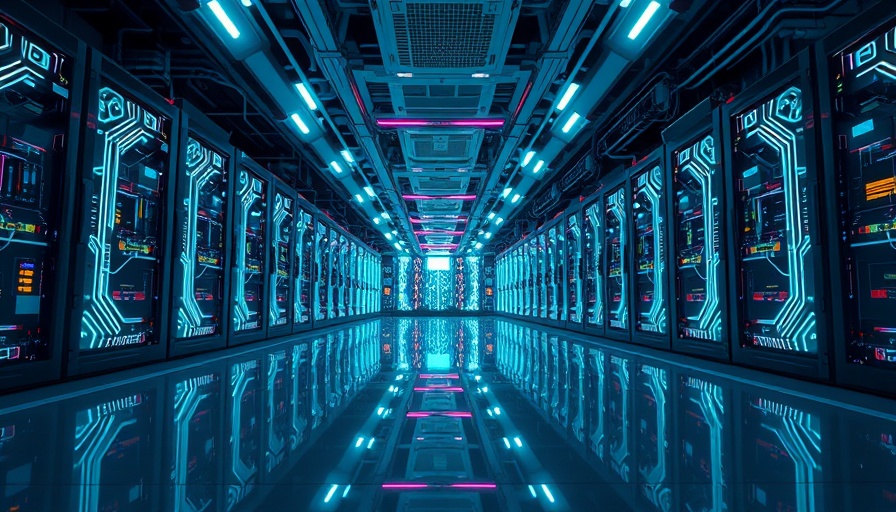
AI's Hidden Costs: What Are We Really Consuming?
The rapid adoption of artificial intelligence (AI) has sparked questions not just about its functionality, but also about its environmental footprint. As services like ChatGPT integrate deeper into everyday life, curiosity about their energy consumption grows. Recently, Sam Altman, the CEO of OpenAI, mentioned that an average ChatGPT query consumes roughly 0.34 watt-hours of energy. To put this into perspective, that's similar to the energy usage of an oven for about one second or a high-efficiency lightbulb for a few minutes. However, without transparency from companies like OpenAI, these figures raise more questions than answers.
Who’s Counting? The Missing Energy Metrics
Experts are sounding the alarm over the perceived lack of environmental accountability among major AI firms. "He could have pulled that out of his ass,” remarked Sasha Luccioni, climate lead at AI company Hugging Face, critiquing the vagueness around Altman's claims. A paper by Luccioni and her co-authors goes further, revealing that a staggering 84% of large language model traffic has zero environmental disclosures. This lack of clarity compels a deeper look into how AI is impacting our carbon emissions as businesses increasingly pivot to utilize these tools.
The Importance of Transparency in AI Energy Consumption
Transparency in energy consumption is critical as businesses integrate AI into their operations. Without clear metrics on efficiency and emissions, users are left in the dark about the environmental costs associated with their digital tools. It's striking to note that while consumers are informed about a car’s miles per gallon, they lack similar insights into AI tools they use daily. This discrepancy raises important questions about regulation and accountability in an era where climate change is a global priority.
AI and Its Carbon Footprint: A Lack of Clarity
The relationship between AI and energy consumption is convoluted. Luccioni's new research highlights a significant gap: the public is often exposed to sensational energy consumption estimates that may not be accurate, including claims that a ChatGPT request consumes ten times the energy of a standard Google search. Disturbingly, this metric traces back to a comment made by John Hennessy, chairman of Alphabet. With such inconsistencies, how can entrepreneurs know the true cost of integrating AI into their businesses?
Leveraging AI: Are Entrepreneurs On The Right Track?
While these concerns about energy consumption and carbon emissions loom large, entrepreneurs shouldn't be discouraged from utilizing AI. The use of AI applications and tools in small businesses can lead to efficiencies and innovative business ideas for 2025 and beyond. From automating mundane tasks with the best AI apps for business owners to leveraging AI business ideas tailored to emerging trends, the opportunities are vast.
Action Steps for Business Owners Embracing AI
In 2025, the integration of AI into small businesses will likely become even more pivotal. To mitigate their environmental impact, entrepreneurs can adopt several best practices. First, they should seek out AI applications with transparent energy usage metrics. Second, understanding how to leverage AI effectively can optimize operations while minimizing energy expenditure. Lastly, joining discussion forums or panel discussions dedicated to AI ethics can provide essential insights for businesses navigating this rapidly evolving landscape.
As the conversation around AI continues to evolve, remaining informed and proactive is essential. Business owners must balance the promising capabilities of AI against its ecological implications. Utilizing the right tools not only enhances efficiency but can also ensure businesses contribute positively to the planet's future.
The shift towards AI is ongoing, but with awareness comes responsibility. Take the time to research AI tools and their energy impacts as you consider incorporating them into your business strategy. By understanding these dynamics, you’ll be better equipped to navigate the intricacies of AI in an ethical and sustainable manner.
 Add Row
Add Row  Add
Add 




 Add Row
Add Row  Add
Add 

Write A Comment